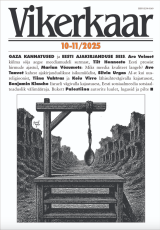Democracy, populism, and the political crisis in Hungary
A response to Thomas von Ahn
In November 2006, Eurozine published an article by Thomas von Ahn analyzing the causes of the demonstrations in Hungary the previous month. Among other things, von Ahn argued that Hungarian opposition (Fidesz) leader Viktor Orbán was operating a populist strategy that sought to undercut parliamentary procedures. Here, György Schöpflin, MEP for Hungary (Fidesz-EPP) responds that von Ahn has uncritically reproduced the spin-doctoring of the Hungarian Left, part of whose tactic is to exaggerate the involvement of the far-Right in the opposition. And in his critique of political instrumentalization of history, Von Ahn is mistaken, argues Schöpflin, in seeking to distinguish between a history that is instrumentalized and a history that is not.
